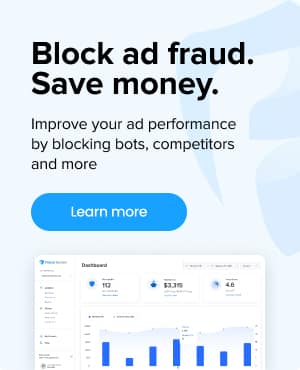What is Google AdSense?
Google AdSense is an program that allows you to earn money from your website or blog by displaying online advertisements. It’s a powerful tool for website owners and bloggers looking to generate income from their online content.
How does Google AdSense work?
AdSense operates by embedding a snippet of code, known as an ad tag, into your website. This code is responsible for displaying ads from Google Ads advertisers, who compete for ad space based on the relevance of keywords associated with the website’s content. The process is straightforward: when a visitor clicks on one of these ads, the website owner earns a revenue share from that click.
How to get started with Google AdSense
To start with Google AdSense, you need a Google account and a website that complies with Google’s policies. The setup process involves:
- Create an AdSense account: Sign up using your Google account and provide the necessary information about your website.
- Add your bank account for payments: You will need to add your bank account information and phone number to ensure you can be paid properly.
- Install the AdSense code: Once your account is approved, you’ll receive a unique AdSense code to insert into your website. This code links your site to AdSense and starts displaying ads.
Tips and Guidelines for Google AdSense
- Website Ownership: The individual applying for AdSense must be the owner of the website. This ensures accountability and control over the content and ad placements.
- Content Compliance: The content on the website must adhere to Google’s AdSense policies. These policies are comprehensive and prohibit content such as adult material, copyrighted content without permission, hate speech, and other illicit or controversial subjects.
- No Click Fraud: Encouraging clicks on your ads or using automated means to generate clicks is strictly prohibited. Read more about click fraud.
- Ad Behavior: Do not alter the AdSense code or manipulate ad placement in a way that misleads users.
- Quality and Quantity of Content: Websites must feature a significant amount of high-quality, original content (important!). This not only enhances the user experience but also provides ample context for relevant ad placements.
- Minimum Traffic Requirements: While Google doesn’t specify a strict minimum traffic requirement, having a steady stream of visitors increases the likelihood of ad clicks and therefore revenue. Websites with higher traffic volumes are more attractive to advertisers.
- User Experience and Design: The website should offer a good user experience, with a clean, easy-to-navigate design. Sites that are difficult to navigate or have poor design may be less likely to be approved.
- Language Support: AdSense supports content in multiple languages, but not all. Ensure that your website’s primary language is supported by AdSense.
Why do websites use AdSense?
- Easy to Use and Integrate: Setting up AdSense is straightforward, with minimal technical knowledge required. Once approved, integrating ads into your site is as simple as copying and pasting a code snippet.
- Variety of Ad Formats and Customization Options: AdSense provides a variety of ad formats including display, video, and interactive ads. These can be customized to fit the look and feel of your website, enhancing the user experience.
- Advanced Targeting: Advertisers using AdSense can target their ads based on user behavior, interests, location, and more, ensuring that your audience sees relevant and engaging ads.
- Competitive Revenue Share: AdSense is known for its fair revenue-sharing model. Publishers receive a significant portion of revenue generated from clicks on the ads displayed on their site (68% of ad revenue recognized by Google).
- Robust Reporting Tools: AdSense offers detailed analytics and reporting tools, allowing publishers to track ad performance, user engagement, and earnings. This data is invaluable for optimizing ad placements and content strategy.
- Global Reach: With AdSense, your website can display ads from a global pool of advertisers, opening up diverse revenue streams.
Examples of AdSense on different types of websites
Blogs: The most common example. For bloggers, integrating AdSense with your content strategy can be lucrative. Ads related to your blog’s niche can perform exceptionally well.
E-commerce Sites: Use AdSense to complement your product offerings. Display ads for products that align with your audience’s interests.
Forums and Community Sites: These sites can benefit from targeted ads that resonate with the community’s interests and discussions.
Key strategies to increase your AdSense earnings
- Optimize the placement of ads on your website: Place ads where they are likely to get clicks without hindering the user experience. Common effective spots are above the fold (the part of the webpage visible without scrolling), within the content, and at the end of articles.
- Generate content around high-value keywords: Certain keywords attract higher-paying ads such as finance, pharma, insurance, and legal. Ads around this type of content can generate far greater revenue-per-click than other types of content. Here’s a list of the most expensive keywords you can target.
- Create high-quality content: The key to AdSense success lies in high-quality, original content. Engaging content attracts more visitors with greater page stickiness, leading to increased ad views and clicks.
- Optimize for mobile: Ensure your website is mobile-friendly. With the increasing use of mobile devices, a responsive design is crucial for user experience and ad performance.
- Adjust based on page performance metrics: Use Google Analytics alongside AdSense to track your site’s performance. Analyze metrics like click-through rates (CTR) and adjust your strategies accordingly. Better CTRs equates to more clicks for the same number of pageviews, meaning more potential revenue for your business.
- Improve SEO to boost organic traffic: Organic traffic from Google search results often receives higher conversion rates than from other channels. Be sure to optimize your content for search engines to increase your site’s visibility and traffic by following SEO best-practices.
Common AdSense mistakes to avoid
AdSense is a powerful tool for monetizing your traffic, but there are a few common mistakes we’ve seen that hurt performance in the long run:
- Ignoring User Experience: Sacrificing user experience for ad revenue is a short-term strategy that harms long-term success.
- Neglecting Site Design: A cluttered or outdated site design can lower ad performance and user engagement.
- Overlooking Ad Balance: Striking the right balance between content and ads is crucial. Too many ads can lead to ad blindness, where users ignore them.
Frequently asked questions
Earnings vary based on factors like website traffic, ad click rates, and the cost-per-click (CPC) set by advertisers. While some may earn modest amounts, others can generate significant revenue.
Control over which ads appear on your website is very limited. You can decide which size of ad you want on your website and where it’s placed, but you can’t control which advertisers appear on it.
Once you’re approved by Google to run AdSense on your website, payments are typically made through electronic funds transfer (EFT) or a check. AdSense operates on a monthly payment cycle, with a minimum threshold of $100 for payout.
Yes, provided each site meets the program’s requirements. Each website must be individually added to the AdSense account.







